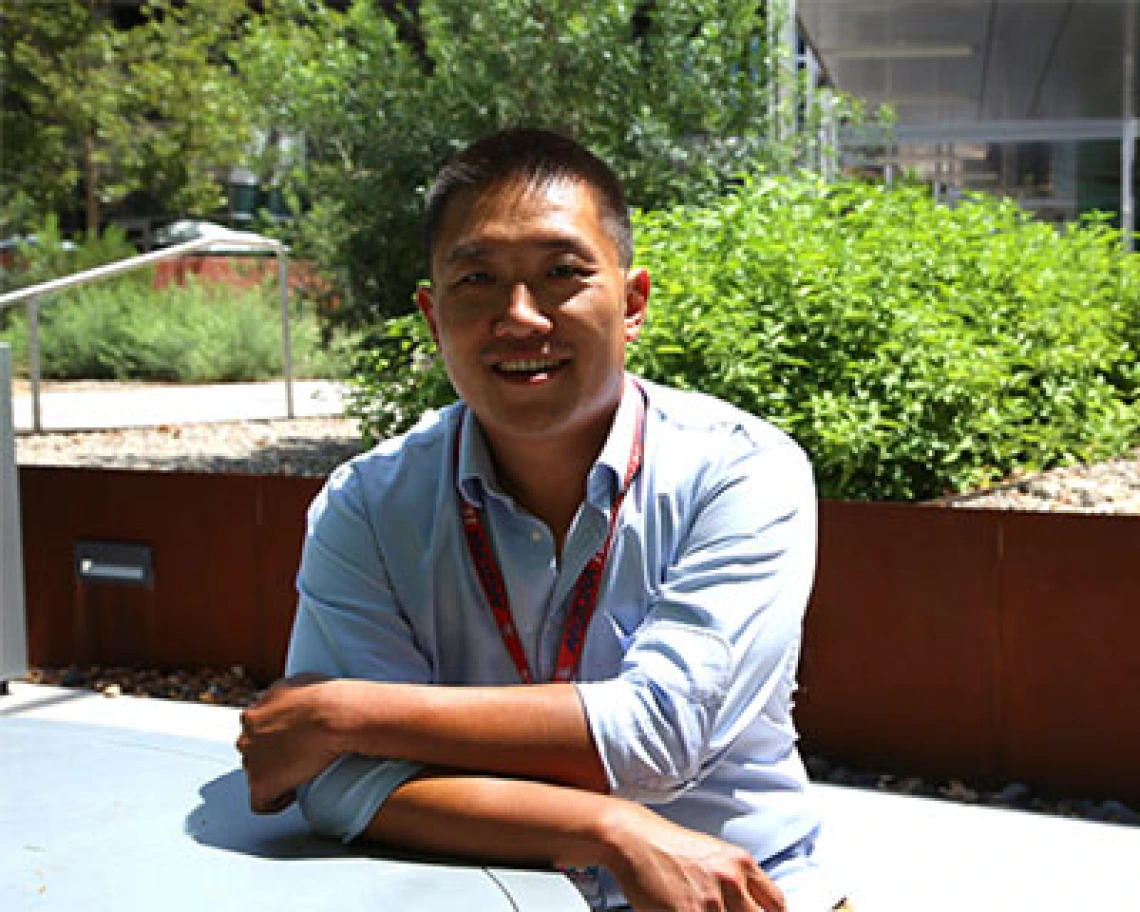Startup Licenses Algorithm Advancing Precision Medicine
Using technology invented at the University of Arizona College of Medicine-Tucson, startup INTelico Therapeutics has taken big data to another level, using a novel computational algorithm in machining learning and artificial intelligence.

TUCSON, Ariz. – Using technology invented at the University of Arizona College of Medicine-Tucson, startup INTelico Therapeutics has taken big data to another level, using a novel computational algorithm in machining learning and artificial intelligence. The algorithm can help to identify the molecular mechanisms, pathways, and networks from a pure data-driven perspective and then identify the drug targets for a specific disease.

Associate professor of neurology Rui Chang. Photo credit: Alison Mairena/Tech Launch Arizona
Through purely computational modeling, the invention delivers a fast, cost-effective and accurate result that allows researchers to identify biomarkers for a treatment prognosis, drug response and prediction of disease progression. The algorithm can also predict the phenotype change of the disease given certain drug interventions, enabling highly efficient, low-cost and precise drug target prioritization and screening.
The inventing team worked with Tech Launch Arizona, the UA office that works with university inventors to commercialize inventions, to protect the intellectual property and license it to a commercial partner, in this case a startup.
With guidance from mentors-in-residence Mike Sember and Kevin McLaughlin, Chang gained valuable business advice through TLA’s I-Corps program, a six-week intensive course that teaches academic entrepreneurs about lean launch methodology and customer discovery.
“Rui has great energy and passion for his vision around harnessing computational power for improved drug application and patient care. It was a pleasure working with him and I wish him success,” said McLaughlin.
The company plans to use the algorithm to provide services to other researchers at academic institutions and pharmaceutical companies to run bioinformatics on their proprietary patient data.
“Dr. Chang has worked with different research groups at various institutions using this algorithm and validated the targets that it found in several publications. The goal is for the company to grow and provide critical services to the biomedical industry to find precision cures for diseases that don’t have cures yet,” said Lisa Lin, licensing manager for the College of Medicine-Tucson.
This technology is pushing the envelope of precision medicine by integrating individual genetic information into the algorithm and predict personalized optimal therapeutic methods given an individual’s genome.
“With this technology, I’m excited to build an atlas of disease models, to create a holistic way to swipe through the disease data and then within each disease section, find the targets for that disease,” said Chang.
- written by Alison Mairena, Technology Marketing Associate
Original story: https://techlaunch.arizona.edu/news/startup-licenses-algorithm-advancing-precision-medicine

